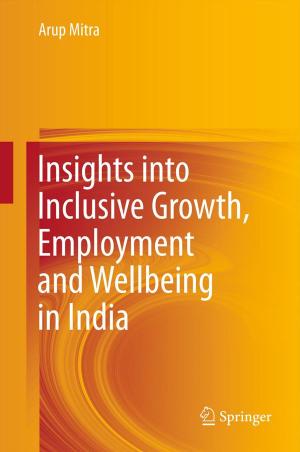Osmolytes and Plants Acclimation to Changing Environment: Emerging Omics Technologies
Nonfiction, Science & Nature, Science, Biological Sciences, Biochemistry, Botany| Author: | ISBN: | 9788132226161 | |
| Publisher: | Springer India | Publication: | December 16, 2015 |
| Imprint: | Springer | Language: | English |
| Author: | |
| ISBN: | 9788132226161 |
| Publisher: | Springer India |
| Publication: | December 16, 2015 |
| Imprint: | Springer |
| Language: | English |
The continual change in climatic conditions induces a series of adaptations in plants to suit the unfavorable conditions for sustainable agriculture. For sustainable agriculture, it is important to unravel the precise mechanism(s) that disturb the homeostatic equilibrium at cellular and molecular level and also to enhance understanding to build strategies for the tolerance of plants. Osmolytes have long been identified as pivotal abiotic stress busters because of their role in plants in overcoming extremely harsh environmental conditions. This edited compilation attempts to put forth the scattered knowledge on osmolytes and their role in abiotic stress tolerance together and disseminate as a package to deal with the problems of lower productivity under stressful environment. It will enhance the understanding on osmolytes function and bioengineering of plants for abiotic stress tolerance.
The book covers very interesting topics dealing with various osmolytes and the mechanistic approach for abiotic stress tolerance to pave the path of agricultural scientists, breeders for developing high yielding sustainable transgenic crops.
The continual change in climatic conditions induces a series of adaptations in plants to suit the unfavorable conditions for sustainable agriculture. For sustainable agriculture, it is important to unravel the precise mechanism(s) that disturb the homeostatic equilibrium at cellular and molecular level and also to enhance understanding to build strategies for the tolerance of plants. Osmolytes have long been identified as pivotal abiotic stress busters because of their role in plants in overcoming extremely harsh environmental conditions. This edited compilation attempts to put forth the scattered knowledge on osmolytes and their role in abiotic stress tolerance together and disseminate as a package to deal with the problems of lower productivity under stressful environment. It will enhance the understanding on osmolytes function and bioengineering of plants for abiotic stress tolerance.
The book covers very interesting topics dealing with various osmolytes and the mechanistic approach for abiotic stress tolerance to pave the path of agricultural scientists, breeders for developing high yielding sustainable transgenic crops.















